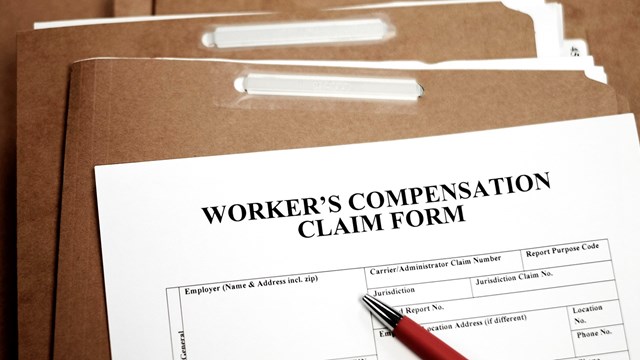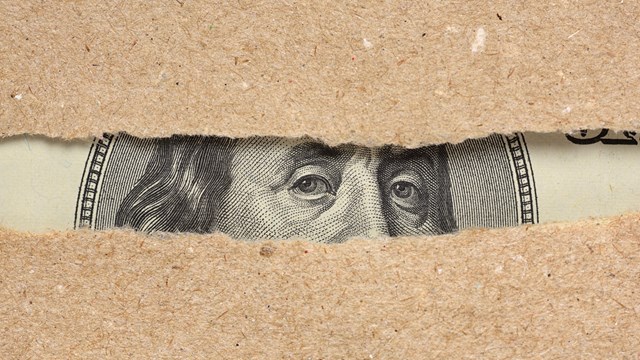
Given recent headlines, cooperative and condominium associations could be forgiven for thinking they need to put an armed guard and razor wire around the petty cash box. A wave of fraud appears to be hitting properties from New York to Florida and beyond.
In New York last December, a Rockland County treasurer pleaded guilty to taking more than $130,000 from an association and a managing agent last August was ordered to pay more than $628,201 to a Manhattan co-op he allegedly defrauded. A bookkeeper in Maine recently was charged with stealing $30,000 from two different condo associations. In Connecticut, a former business manager—whom police allege had a gambling problem—pleaded not guilty to stealing $226,000 from a condo association in Ledyard, home of an Indian casino. In March, a New Jersey condo association president pleaded guilty to embezzling more than $50,000 from her association, and another business manager in Florida allegedly stole more than $856,000 from five area homeowners associations.
Perhaps the largest case of fraud reported in recent months is that of a New York managing agent, who allegedly siphoned off $1.3 million in property taxes from six co-ops.
The vast majority of all of the folks managing the day-to-day operations of a co-op or condo are honest and dedicated to their tasks. But, as in any line of work, you’ll have a few bad apples who aren’t and who have little compunction about ripping off their building and community. And with the current recession grinding on, and people in all situations finding themselves in financial trouble, some may be more tempted to do wrong. So how do you keep your own building safe? What are some of the hallmarks of fraud, and how can you put a stop to it if it's unearthed in your community?
Crimes of Opportunity
If you’re a board member, there are a number of common types of fraud to be on the lookout for.
One type, says attorney Marc J. Luxemburg of Snow Becker Krauss PC in Manhattan, is bookkeeping fraud. “People who keep the financial records may write inappropriate checks. A variation is where the treasurer is enriching himself or herself at the building’s expense.”
He also mentions the possibilities of construction-related fraud. “Several types go on there,” he said. “One is for work that is supposed to be done but is not and then gets billed for; one is for work that is supposed to be done right but is done shoddily and gets billed for; and three, buildings are subject to being told they need to have work done that doesn’t need to be done.”
Carl M. Cesarano, CPA, a principal of the accounting firm of Cesarano & Khan, CPAs, PC in Floral Park, talked about several other types of “questionable activity” that dishonest employees could execute. One, he says, involves transactions that originate through wire transfers. For example, it could start with certain types of “non-recurring revenue,” such as a refund for an overpayment, an insurance refund or worker’s comp. Sometimes in these situations, he says, “the auditor is not even expecting a refund.” And in these situations, there’s a danger that the money isn’t properly processed back into the operating account, but ends up in someone’s personal account.
To cover up his or her tracks, Cesarano adds, a dishonest management employee may start to do an online transaction, such as make a deposit, but stop just short of the final “click,” then print out a screen that makes it appear that this transaction has been finished. Needless to say, it isn’t.
In some situations, he continues, the dishonest employee or manager, when asked where a certain amount of money is, could answer, “Oh, I bought a CD account with it.” But the CD doesn’t exist. The dishonest employee may take a photo of a valid CD account, then, through a computer program, “whites out” the CD number and puts in a fictitious number. “Then, when you call the bank, it doesn’t have a valid number.”
Why Do They Do It?
What would make a managing agent or contractor/vendor want to defraud a development, other than simple dishonesty? The experts we spoke to gave several possible reasons. Mindy Eisenberg Stark, CPA, CFE, of Scarsdale, says that often, the trigger is a “change in lifestyle,” such as a gambling or drug addiction.
Cesarano adds that the need for money often will lead dishonest employees to perpetuate a “lapping and kiting scam.” For example, he says, “Let’s say I manage 10 buildings. I have a problem in Building 1, I use the funds for Building 2 to cover Building 1. Then when the auditor comes, I use the funds from Building 3, and so on, using a wire transfer. Of course, at some point, it’s going to implode.”
Some buildings may be more vulnerable to fraud than others, of course. When a board pays attention to what’s going on, that cuts down on the building’s vulnerability substantially.
Often a lack of oversight and a larger bank account can combine to make fraud attractive to dishonest individuals. “A building that has a larger budget has more reserves,” says Stark. “Oversight is the key [to combatting these problems]. And internal control.”
Co-op and condo boards, Cesarano reminds us, “aren’t compensated. They’re trying to work their own jobs. When you rely too much on your agent without questioning things, without looking at these reports on a monthly basis, you kind of become a little lackadaisical. Make sure there are oversight people on the board who are looking at these things on a monthly basis, and that the managing agent has the proper infrastructure.”
`Red Flags’
There are several signs that could be considered “red flags” that a staff member, manager or service provider could be defrauding the development. One example might be vendors not being paid on a timely basis. Another could be expenses going up without an explanation. Yet another might be big-money transactions that you don’t expect.
In general, the board should pay attention to bills that are received and checks that are written. “When something comes in that doesn’t look right,” says Luxemburg, “it’s probably not right.”
So what happens if you come across evidence of fraud in your building community? Say, for example, the board, or a particular board member, investigates, and does indeed discover fraudulent practices? What should they do—and what should they NOT do?
According to the experts, one of the first steps, if not the first step, is to contact the board’s auditor and/or attorney. Cesarano says that if one board member is the one who finds out, he or she should inform the entire board. “A lot of boards have a finance committee, treasurer, assistant treasurer,” he says. “It should be brought up to the whole board.”
The board or board member should not, however, jump to conclusions. The matter has to be investigated. You wouldn’t want to prematurely broadcast your suspicions but then find out they’re not true—aside from the obvious embarrassment, such allegations could result in charges of defamation or libel.
After all, says Cesarano, somebody could have just made a mistake. “If you see something questionable, you should not just run to the DA—you should have a reason.”
In addition, says Stark, “[The board members] shouldn’t speak immediately to the target [suspect]. They need to develop a case first and find out the facts and the circumstances.”
Protecting Yourself
It's all very well to know what to do if fraud is suspected or uncovered in your building community. But how do you make your building or development less vulnerable to being ripped off to begin with?
There are several safeguards that can make fraud less likely. For example, in conjunction with its accounting professional, a board can set up a series of procedures that are designed to act as checks and balances. Oversight is key, says Stark. Board members should be looking at the monthly management reports, and as in many other fields of endeavor, “There should be no one person who could become too powerful.”
Cesarano adds that in addition to monthly management reports, cash receipt reports and bank reconciliations should be carefully monitored.
And if you have a contract with a service provider or vendor, parameters should be written into the contract to make sure that the board can monitor whether that contractor’s work and billing practices meet the building’s expectations.
“Probably the biggest unsuspected or concealed fraud goes on in the construction area, in my opinion—incomplete work, shoddy work, unnecessary work,” says Luxemburg. “The board’s check on that is to hire a reputable architect or engineer. The board should do their homework really carefully when they hire a design professional.” They should interview a number of people, not just rely on one recommendation or go with the lowest bidder on a given project.
Also be aware of the practice of “commingling” accounts, or putting funds belonging to several buildings into the same account. While it isn’t technically illegal, the practice is frowned upon by established managers and by accountants for co-ops and condos—because it makes it that much harder to keep track of the money.
What could boards learn by some of these cases? As we’ve already said, board members should read management reports, set up a system of checks and balances, make sure the proper monitoring is written into contracts, and be scrupulous when hiring professionals. Cesarano adds that “proper segregation of duties” for employees is important.
And if there’s any indication of improper activity, immediately notify your accountant and/or your lawyer.
Raanan Geberer is a freelance reporter and editor living in New York City.






7 Comments
Leave a Comment